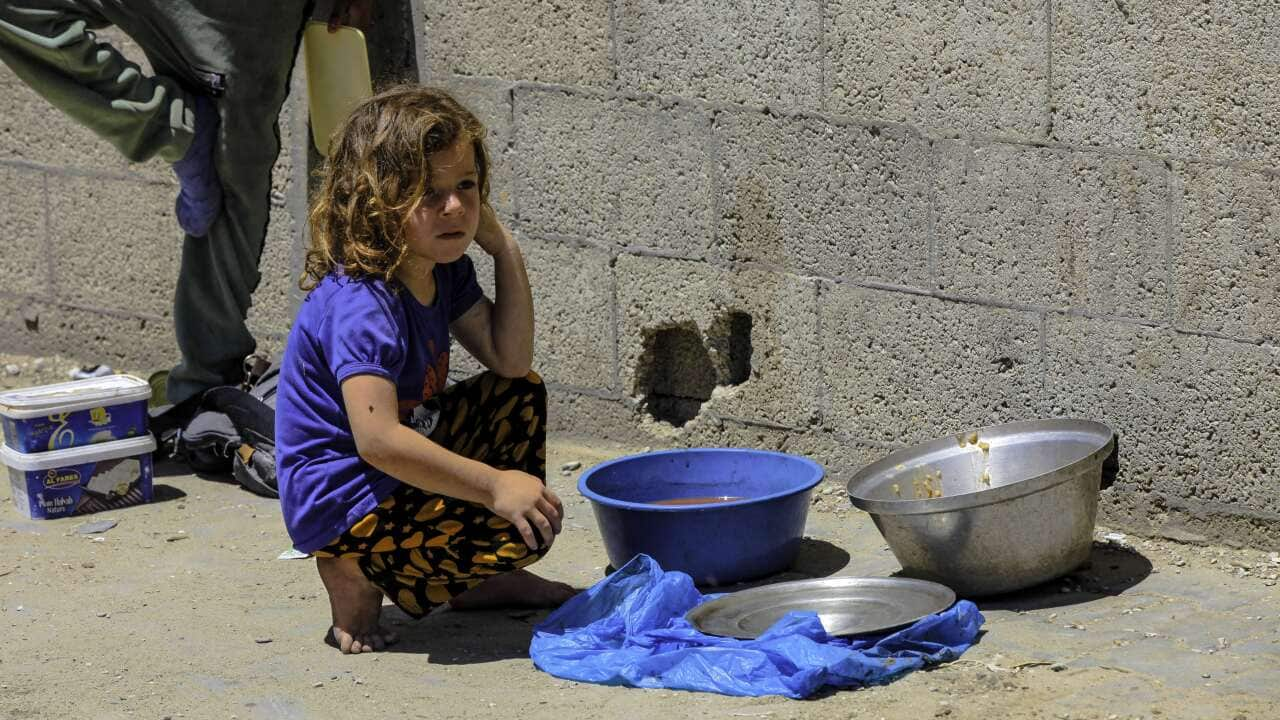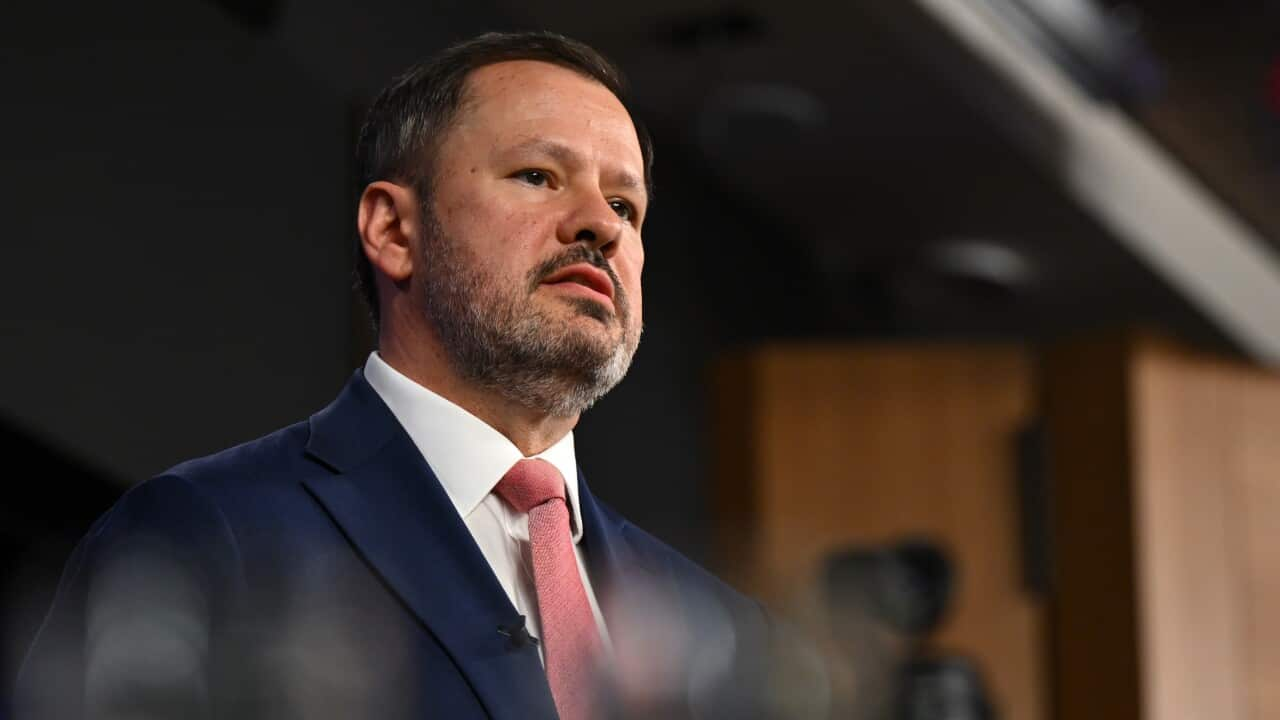Israel's foreign minister Gideon Saar says his country has fully endorsed US , which has received condemnation from major international aid organisations.
The US state department has said the plan would be led by a new foundation and distribute aid with security support from Israel, leading to concerns it would compromise existing aid organisations and structures.
The UN says the plan would force the displacement of Palestinian people and will not adequately meet their food needs, as the situation under over two months of an aid blockade becomes more dire, with reports of widespread malnutrition, especially amongst newborns.
The department's plan would only allow aid to feed around 60 per cent of the estimated Gaza population, establishing sites which will aim to provide "pre-packaged rations, hygiene kits and medical supplies" to a total of 1.2 million Palestinians, CNN reported, citing state department documents.

The UN has repeatedly warned of a looming famine in Gaza. Source: AAP / Habboub Ramez/ABACA/PA/Alamy
"During this war, Israel allowed humanitarian aid to flow into Gaza and facilitated it but Hamas stole that aid from the people," the Israeli minister claims, which Hamas disputes.
"If the aid continues to go to Hamas and not to the people of Gaza, the war will continue forever."
What do we know about the US aid plan for Gaza?
The US has outlined setting up a new organisation called the Gaza Humanitarian Foundation that would run four distribution sites manned by US military contractors.
Mike Huckabee, the US ambassador to Israel, said the foundation's aim is to ensure that Hamas militants are completely excluded from the process of aid distribution.
He blamed Hamas for the rising food insecurity in Gaza, saying the group was seizing shipments meant for relief operations.
Hamas denies the allegation and accuses Israel of using starvation as a weapon against the population.
Aid groups say over the last two months has pushed widespread hunger to near-famine levels and increased the risk of malnutrition-related deaths.
Gaza is experiencing severe shortages of food, clean water, fuel and medicine, they say.
The UN projects 91 per cent of Gaza's estimated population will face acute to catastrophic levels of food insecurity.
Over 400 aid distribution sites were operating in Gaza before the total aid blockade and critics of the new plan say Gazans would now have to walk long return distances with aid packages.
Senior Hamas official Basem Naim said the plan would represent "militarisation of aid and its transformation into a tool for managing starvation and a blatant violation of humanitarian standards".
He called on the international community "to take urgent action to prevent" its implementation.
Why are aid groups concerned?
Huckabee called upon the UN, "every NGO" and "every government" to take part and said that several organisations have agreed to take part, without naming them.
But the UN has been fiercely critical of the plan.
"This mechanism appears practically unfeasible, incompatible with humanitarian principles and will create serious insecurity risks, all while failing to meet Israel’s obligations under international law," the UN Office for the Coordination of Humanitarian Affairs (OCHA) wrote last week in documents widely shared in US media.
OCHA said in a public statement it had aid supplies ready to be delivered but cannot until the aid blockade is lifted.
"...We will not participate in any scheme that does not adhere to the global humanitarian principles of humanity, impartiality, independence and neutrality," it said.
"[The plan] contravenes fundamental humanitarian principles and appears designed to reinforce control over life-sustaining items as a pressure tactic — as part of a military strategy.
"It is dangerous, driving civilians into militarised zones to collect rations, threatening lives, including those of humanitarian workers, while further entrenching forced displacement."
Amnesty International voiced alarm over the aid plan, saying in a statement "a foundation contributing to Israel's illegal occupation of Palestinian territory would be in violation of international law".
Under international law, the Israeli occupation of the Gaza strip and the West Bank is considered illegal.
The United Nations Relief and Works Agency for Palestine Refugees, UNRWA, which has been criticised by Israel and the United States, said it was "very difficult" to imagine any operation to deliver humanitarian aid in Gaza without its presence.
"It is impossible to replace UNRWA in a place like Gaza. We are the largest humanitarian organisation," the agency's spokeswoman Juliette Touma told a press conference in Geneva, when asked about the proposal.
Last week the said it had halted work in the Gaza Strip because it had run out of supplies and was being prevented by Israel from bringing in aid.
With additional reporting by Agence-France Presse.



